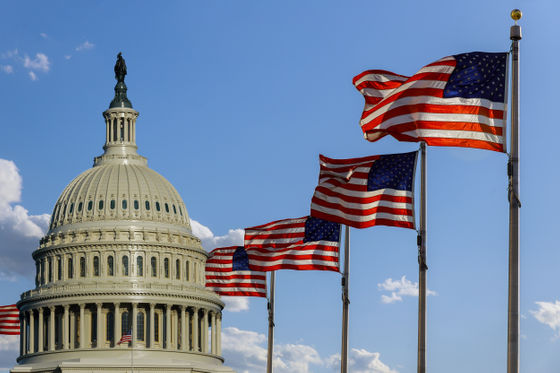President Biden signs the TikTok ban bill, starting the 270-day countdown to sale or withdrawal. What was behind this unprecedented speedy passage?

On April 24, 2024, US President Joe Biden signed a bill ordering TikTok's Chinese parent company, ByteDance, to sell TikTok. The passage of this law, also known as the 'TikTok Ban Act,' requires TikTok to sell its business to a US company within a minimum of nine months and a maximum of 12 months, and if it does not sell, it will not be able to distribute the app in the US.
Inside Lawmakers' Secretive Push to Pass the TikTok Bill - The New York Times
The law that was passed this time is the 'Protecting Americans from National Security Threats Posed by Applications Controlled by Foreign Adversaries Act .' The U.S. House of Representatives passed this bill on April 20, 2024, along with emergency budget bills to support Ukraine, Israel, and Taiwan. The bill passed the Senate on the 23rd and was awaiting signature by the President.
Bill to ban and force sale of TikTok finally passed in the US Senate, President Biden announced that he would 'sign the bill immediately and address the nation' - GIGAZINE

President Biden, who had previously stated that he would sign the bill as soon as it reached his desk, signed the bill on the 24th. This began a 270-day, roughly nine-month countdown for TikTok to either sell or withdraw.
The passage of the TikTok ban in the United States is seen as the culmination of efforts by regulators and bipartisan lawmakers who fear that ByteDance could leak sensitive information about Americans to the Chinese Communist Party.
A sense of crisis about the harmful effects of TikTok is spreading throughout Europe and the United States. On April 24, TikTok announced that it would suspend some of its features in response to EU criticism that its rewards program for TikTok Lite, which allows users to earn points by watching videos, was creating addictive behavior, especially among children.
Statement on TikTok Lite: 'TikTok always seeks to engage constructively with the EU Commission and other regulators. We are therefore voluntarily suspending the rewards functions in TikTok Lite while we address the concerns that they have raised.'
— TikTok Policy Europe (@TikTokPolicyEUR) April 24, 2024
There has been criticism that government actions to shut down specific platforms violate the First Amendment to the U.S. Constitution, which guarantees freedom of speech. Experts have suggested that if TikTok were to sue the government against the ban, it would be difficult for the authorities to win a lawsuit arguing that TikTok is a propaganda tool for the Chinese Communist Party and that there are privacy concerns.
On the other hand, there are deep-rooted concerns that China, which is recognized as an 'enemy of the United States,' could take control of news and information networks in the future and threaten American freedom of speech. Therefore, it is said that the authorities are trying to avoid criticism by stating the purpose as protecting national security, and this may be the aim behind the inclusion of the phrase 'protecting the American people from national security threats' in the official name of the law.
Mark Zuckerberg, head of Meta, has a deep connection with TikTok, having previously sought to acquire the lip-sync app Musical.ly in 2018, and having lost it to TikTok, and attempting to make a comeback by launching a short movie feature similar to TikTok called Reels in 2020 but struggling. For this reason, Zuckerberg has been hostile towards TikTok from early on, loudly pointing out that TikTok is a Chinese app and warning of the risk of censorship in a speech at Georgetown University in 2019, and some point out that these movements are behind the growing criticism of TikTok in American politics.
On the other hand, TikTok has also engaged in large-scale lobbying, spending a record $7 million (approximately 1.1 billion yen) in 2024 alone, according to a report . It has also been reported that there was a behind-the-scenes effort by a small number of bipartisan lawmakers to regulate TikTok, known among those involved as the 'Thunder Run.' Behind the scenes of the unprecedented speed with which the TikTok ban law was passed, complex political motives were involved.

The Biden administration has stated that it will continue to use TikTok as one of 'all the tools we use to have a voice heard by young voters' as it seeks re-election in the November 2024 presidential election, inadvertently confirming that TikTok has tremendous support from young people. Attention is focused on the extent to which TikTok can use its popularity to counter regulatory laws.
'The reason this legislation was crafted in secret, rushed through the House, and ultimately bundled with more serious, must-pass legislation is because it's the very ban that Americans hate,' TikTok spokesperson Alex Haurek said in a statement. 'It's a sad irony that Congress would pass a law that tramples on the free expression rights of 170 million Americans as part of a policy that claims to seek to advance freedom around the world.'
Related Posts:
in Web Service, Posted by log1l_ks







